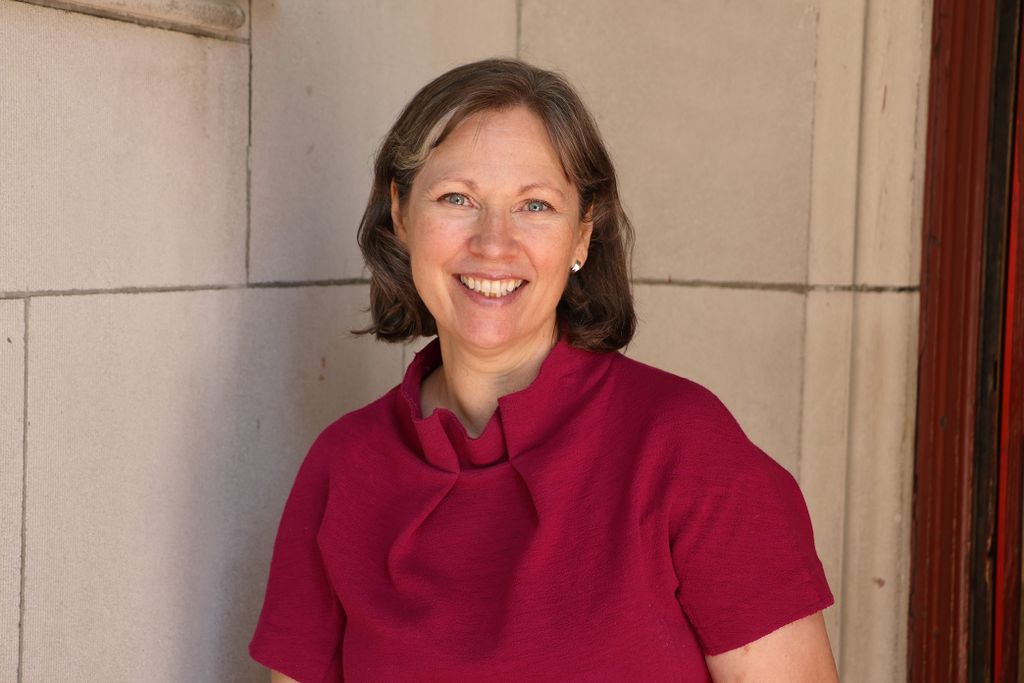Rhonda Bondie

Associate Professor, Special Education, Director of Hunter College Learning Lab
Rhonda Bondie is the Director of the Hunter College Learning Lab and an associate professor in special education. Throughout her career, she has focused on ensuring all learners are valued, engaged, and stretched in inclusive classrooms. Rhonda began teaching as an artist-in-residence and then spent over 20 years in urban public schools as both a special and general educator. Rhonda’s co-authored book, Differentiated Instruction Made Practical, is used by teachers in more than 30 countries to support their work of ensuring all learners are thriving every day. Rhonda’s research examines how teachers develop inclusive teaching practices and differentiated instruction expertise throughout their career using new technologies.
- Ph.D., (2001). George Mason University, Educational Leadership & Special Education. Dissertation: Bilingual communication methods, text versus video, to increase parent involvement and science fair project student achievement
- M.A. (1991). New York University, Educational Theatre
- B.A. (1989). New York University, Interdisciplinary and Individualized Studies, Honors: cum laude
- Certificate (2018). Hunter College, Teaching English as a Second Language (TESOL – Adult)
- Certificate (1991). George Mason University, Instructional Technology
Rhonda teaches courses in special education related to teaching learners with diverse strengths and needs. Through her teaching, Rhonda shares practical expertise developed through decades of public school teaching in both special and general education and with multilingual learners.
Rhonda’s research explores the puzzle of how teachers ensure that all learners are learning every day. Toward this goal, she examines teacher learning, specifically researching how immersive technologies provide differentiated and personalized professional development that in turn equips teachers to effectively differentiate instruction and build inclusive communities.
Book
- Bondie, R., & Zusho, A. (2018). Differentiated instruction made practical: Engaging the extremes through classroom routines. Routledge.
Research
- Bondie, R., Wiseman, E., Dede, C., Zusho, A. & Rich, D. (2022). Can Differentiated and Personalized Mixed Reality Simulations Transform Teacher Learning? Technology, Mind, and Brain.
- Bondie, R., Mancenido, Z., & Dede, C. (2021). Interaction principles for digital puppeteering to promote teacher learning. Journal of Research on Technology in Education, 53(1), 107-123.
- Bondie, R., *Dahnke, C. & Zusho, A. (2019). Does changing “one-size fits all” to differentiated instruction impact teaching and learning? Review of Research in Education. 43(1), 336-362.
- *Freedberg, S., Bondie, R., Allison, C., & Zusho, A. (2019). Challenging Students with High Abilities in Math and Science Classrooms. High Ability Studies, 30(1-2), 237-254.
- Kumar, R., Zusho, A., & Bondie, R. (2019). Weaving cultural relevance and achievement motivation into inclusive classroom cultures. Educational Psychologist, 53(2), 78-96.
- Bondie, R., & Zusho, A. (2017). Racing against yourself: high stakes for adolescent English language learners with disabilities. Teachers College Record, 119(9), 1-42.
- Bondie, R. *Uzun, M. (2017). Does teacher preparation influence candidate’s confidence to teach students with disabilities? Scholar-Practitioner Quarterly. 11(1-4), 212-227.
- Bondie, R. (2015). A Digital teaching platform to further and assess use of evidence-based practices. Rural Special Education, 34(1), 23-29. https://doi-org.ezp-prod1.hul.harvard.edu/10.1177/875687051503400106
- *Straus, H. A. & Bondie, R. S. (2015). What factors contribute to paraeducator self-efficacy? Journal of the American Academy of Special Education Professionals.
- Milman, N. B., & Bondie, R. (2012). An examination of teachers’ ratings of lesson plans using digital primary sources. Contemporary Issues in Technology and Teacher Education, 12(4).
For Teachers
- Bondie, R. & Zusho, A. (2020). The Secrets to Motivation: Autonomy, Belonging, Competence, and Meaning (ABC+M). ASCD Express. https://www.ascd.org/el/articles/the-secrets-to-motivation-autonomy-belonging-competence-and-meaning
- Bondie, R. & Zusho, A. (2020, May 28). Responses to ‘Why do I have to learn this?’ L. Ferlazzo (Ed.), Education Week. http://blogs.edweek.org/teachers/classroom_qa_with_larry_ferlazzo/2020/05/responses_to_why_do_i_have_to_learn_this.html
- Bondie, R. (2020, April 23). Practical Tips for Teaching Online Small Group Discussions.. ASCD Express http://www.ascd.org/ascd-express/vol15/num16/practical-tips-for-teaching-online-small-group-discussions.aspx
- Bondie, R. (2020, April 23). Direction correction: Getting the directions you want. ASCD Express. http://www.ascd.org/ascd-express/vol15/num16/direction-correction-getting-the-discussions-you-want.aspx
- Bondie, R. (2019). Demystifying differentiated instruction. Science and Children, 57(2), 14-19. https://www.jstor.org/stable/26901510
- Bondie, R., Gaughran, L., & Zusho, A. (2014). Fostering English Learners’ confidence. Educational Leadership, 72(3), 42-46.
- Bondie, R. (2012). Knowing ourselves enables us to teach others. https://schoolleadership20.com/profiles/blogs/knowing-ourselves-enables-us-to-teach-others-by-rhonda-bondie
- Training/Research Grant (PI); Teaching Language and Literacy as an Act of Resistance, Teaching with Primary Sources, Library of Congress ($168,000)
- Training/Research Grant (PI); Teaching Language and Literacy as an Act of Resistance, Teaching with Primary Sources, Library of Congress ($88,000)
- Research Grant (Co-PI) Assessing Impact of Teaching Decision Making Harvard Culture Lab Innovation Fund (CLIF) ($15,000)
- Training Grant (PI), Differentiation Instructional Coaching for Teachers and Administrators Grades 4 through 12, Burke County Public Schools ($20,000)
- Course Development Grant (PI), Personalizing Teacher Preparation T210Z1 Dimensions of Diversity, Harvard Faculty Experimentation Fund ($10,582)
- Research Grant (Co-PI), Teaching Decision-Making through Experiential Learning and Personalized Practice Across Disciplines Harvard Initiative for Learning and Teaching (HILT- Spark). ($16,060)
- Training Grant (Project Coordinator), Teaching Curriculum, Library of Congress Teaching with Primary Sources ($20,000)
- Training Grant (Co-Project Director), Durable Learning Routines, Library of Congress Teaching with Primary Sources ($20,000)
- Program Improvement Grant, Project REACH: Rigor, Equity, Access, Collaboration in Higher Education (Co-Principal Investigator), Office of Special Education (OSEP) – US Department of Education ($1,500,000).

